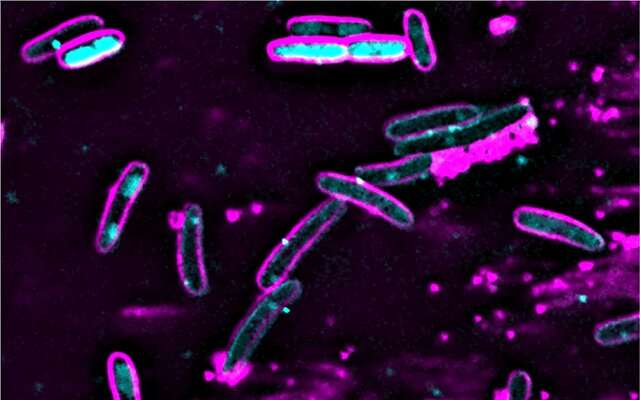Taking one for the team: How bacteria self-destruct to fight viral infections
Date: 13.1.2020
Researchers at University of California San Diego School of Medicine have discovered how a new immune system works to protect bacteria from bacteriophages (phages), viruses that specifically infect bacteria. This new system is unusual in that it works by abortive infection – the infected bacterial cell self-destructs to keep the infection from spreading to other cells.
 The pair of papers, published January 10, 2020 by Molecular Cell, provides new information that could be employed to improve treatment of multidrug-resistant bacterial infections by refining phage therapy or even purposefully triggering bacterial self-destruction.
The pair of papers, published January 10, 2020 by Molecular Cell, provides new information that could be employed to improve treatment of multidrug-resistant bacterial infections by refining phage therapy or even purposefully triggering bacterial self-destruction.
"Abortive infection is an old concept, but it's still controversial – a bacterial cell essentially takes one for the team, killing itself rather than being used to produce more phages," said senior author Kevin Corbett, Ph.D., associate professor of cellular and molecular medicine at UC San Diego School of Medicine.
"It's been debated whether or not it's logical, from an evolutionary standpoint, for single-celled organisms to do this. But if we think of bacteria as a cooperative community, a biofilm, rather than as individual cells, it makes sense."
Almost 75,000 different bacteria have had their genomes sequenced. Of those, Corbett said this new defense system is found in approximately 10 percent. His team cloned the system, now called CBASS, into a laboratory strain of E. coli that is usually sensitive to phage infection. "We were thrilled to find that CBASS provided nearly absolute immunity to phages," Corbett said.























